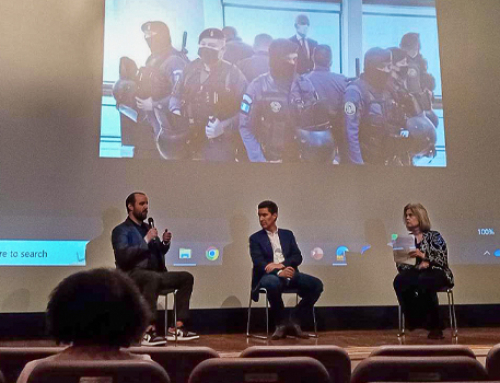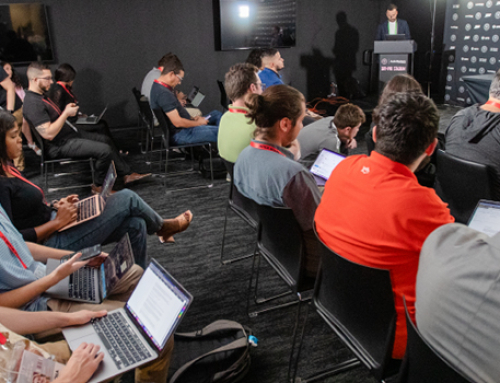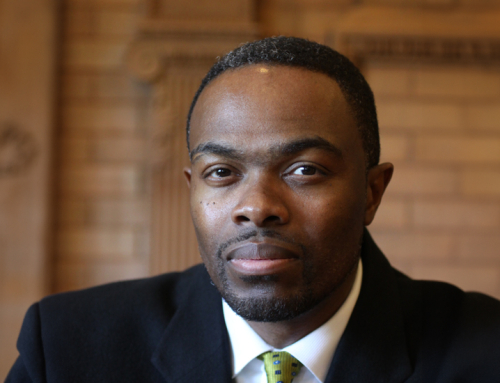By Barbara Gutierrez
Studies show that consumers are reading and watching less local and national news. In many cases, it is for mental health reasons.
If you have been experiencing stress because of the state of the world—a pandemic, political strife, killings, and extreme weather conditions—you are not alone.
For many, news can be toxic, and its intensity can promote helplessness and exhaustion, experts report.
A 2022 Reuters Institute for the Study of Journalism report on consumers in the United States said that while the majority of people surveyed consume news regularly, 38 percent said they often or sometimes avoid the news—up from 29 percent in 2017. Around 36 percent—particularly those younger than 35—say that the news lowers their mood.
It is no wonder that Pew Research Center and CivicScience data show that local news and national news numbers have declined dramatically in the past years.
“The reality is that there will always be bad news,” said Antonio Mora, associate professor of professional practice and Francis L. Wolfson Chair at the University of Miami School of Communication. “It is the type of bad news that we have been getting that is perhaps different.”
The coronavirus pandemic and its aftermath, the political divide in the country, climate change, economic insecurity, and the war in Ukraine are some of the news that can be stressors in everyday lives, according to experts. The advent of social media and the steady distrust in media are also factors that have contributed to this decline, they added.
“While it may be the case that we are not as in tune with legacy news media as we once were, there are now many more ways to listen and learn through a variety of sources and digital platforms,” said Karin Wilkins, dean of the School of Communication. “We are still interested in the world around us, but the blurring of genres and abundance of media produce a cacophony of voices.”
She added that “sifting through those voices for credible journalism matters if we are to have a strong democracy.”
The advent of social media has greatly influenced the decline in viewers of local and national television news, said Mora, a former television news anchor who admits he watches less local news than in years past.
“We get push news notifications and weather information on our phones,” he said. “The reality is that if you subscribe to a number of notifications from news organizations you will be superficially informed by simply looking at headlines that pop up on your phone.”
For many people those headlines are enough, he pointed out.
The decline in mainstream news consumption is not limited to the U.S. School of Communication lecturer Gina Presson and professor Joseph B. Treaster are in London with a group of 15 students in the School of Communication’s London summer study abroad program on Global Communication. They have been meeting with top news executives from media organizations that include the BBC, Sky News, and the Daily Express.
One trend the executives noted is that viewers are moving away from “appointment news,” or watching news at a prescribed time. Instead, they are accessing the news online when they can choose the time, Presson said.
“Researchers speculate that people have fatigue from news about wars, politics, natural disasters, and crime,” said Presson. “There seems to be evidence that some people are taking a break from news and citing mental health reasons.”
Treaster said that many news executives are very aware that some consumers “feel overloaded with anxiety-provoking news and that they look for uplifting and often lighter stories to offset the strain of the stories of conflict and tragedy.”
“They say they have always done that but that they are making more of an effort these days to find brighter, uplifting stories,” he said. Treaster said that many news executives in London told the students and faculty members that they had sharply increased their use of social media platforms like Twitter, Instagram, and TikTok to send out lighter, less anxiety-producing news reports. Treaster said the news going out on social media is aimed at a younger audience.
“The reports are short and peppy,” Treaster said. “They are expected to be read on cell phones and often focus on entertainment, celebrity news, quirky, funny developments, and sports.”
Treaster said the news executives hoped their social media messaging would eventually bring younger viewers to their traditional television screens and news websites but that that they were not immediately seeing evidence of that happening.
Offering stories that offer solutions for big issues like climate change and featuring human interest stories that highlight ordinary people doing extraordinary things are also ways that executives hope will bring viewers back, Presson noted.
It is precisely some of those issues that Presson will be tackling as the new coordinator for social impact journalism education at the School of Communication, in which she will develop ways that reporting can promote social justice and sustainability.
One other component of her role is to develop ways to incorporate solutions in everyday journalism coverage. Presson worked as a reporter and producer for NBC, CBS, and PBS.
“As a reporter and producer, I have always covered social, environmental, political, and investigative and technology stories,” she said. “While I certainly have covered my share of crime and natural disasters, those are not the stories people remember.”
She recalled how Poynter Institute broadcast director Al Tompkins said that viewers remember and come back for the stories that “aim for the heart.” The Poynter Institute is a nonprofit journalism think tank that owns the Tampa Bay Times and is based in St. Petersburg, Florida.
Presson emphasizes that journalists should not shy away from covering policy issues; but rather, look at how policy affects people.
“Putting a face on the news that people may identify with is important,” she said. “That system has worked for me and is one of the principles I teach.”
This story originally appeared at https://news.miami.edu/stories/2023/08/are-you-sick-of-bad-news.html.






